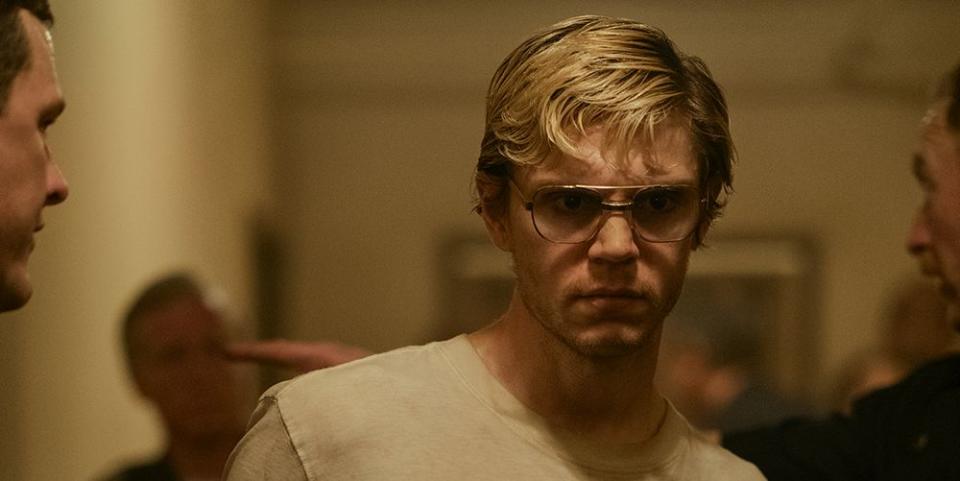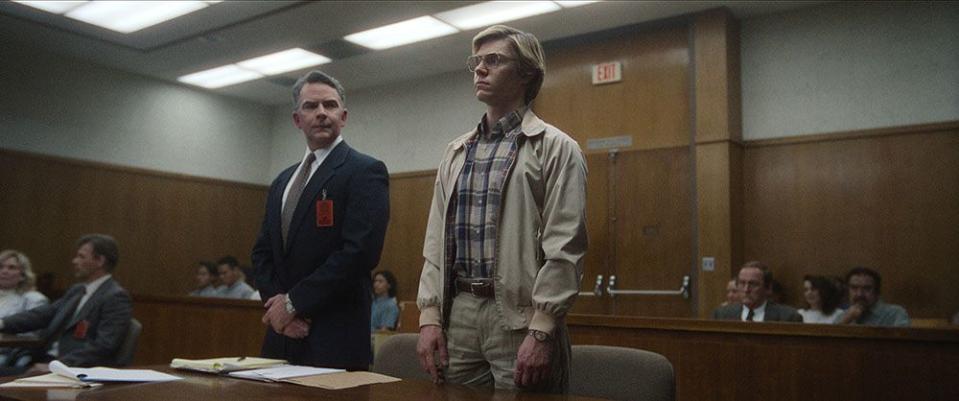Why is Hollywood so obsessed with casting teen heartthrobs as serial killers?

Hollywood has a serial killer problem. From TV and film to podcasts and books, they're everywhere. Serial in more ways than one. Society has always been fascinated by the macabre, and the pop culture fixation on serial killers reflects just that - playing into a genre of horror that isn't exactly new in entertainment. But if this is meant to be horror designed to terrify and repulse, then why does Hollywood persistently cast teen heart-throbs and boy-next-door types to play these roles?
The list of stars who've played serial killers is probably the very same list of people you had posters of on your bedroom wall as a teenager (Avril Lavigne not included). Most recently, Evan Peters as Jeffrey Dahmer in MONSTER Dahmer: The Jeffrey Dahmer Story, which shot straight to number one on Netflix's Most-Watched this week [28th September].
But also the likes of Zac Efron, James Franco, Jamie Dornan, Christian Bale, and even One Tree Hill star Chad Michael Murray, who played Ted Bundy in American Boogeyman. They've all played real or imagined serial killers, responsible for gruesome torture and cruel murders, often with some truly heinous methodology thrown in. While this type of violence has been portrayed time and time again, isn't there something particularly egregious in the actors cast to play such roles?

Much like the 'bad boy' trope that Hollywood has such a problem with, casting heart-throbs seems to play into the idea that abuse, violence and manipulation are all things to be romanticised. Otherwise why would the floppy-haired sweethearts of our teenage fantasies be specifically chosen to play these killers? It's as though we're encouraged to see them as some kind of redeemable, fixable evil: sheep in wolf's clothing - toxic and dangerous on the surface but with something inherent within them we should find good and trustworthy.
But, beyond getting us to fancy characters who do bad things, what's the problem? It's just entertainment, right? It's not that simple. As we already know, the romanticisation of 'bad boys' in pop culture and entertainment potentially encourages us to condone and even embrace damaging and abusive relationships. The same thing is at work here - in a more insidious way. Suddenly we're not just being told to forgive the behaviour of the bad boy. We're being told that despite committing the most heinous of abuses, the bad boy isn't really all that bad. There's a High School Musical heart of gold under all that maiming.
For years, the internet has declared us all in the grip of 'Bundy Binge'. But there's nothing binge-esque about something as sustained and consistent as pop culture's Bundy obsession. In 2019, Zac Efron took on the role; in 2021, Chad Michael Murray and Luke Kirby played the part. Right now, real life serial killer Jeffrey Dahmer seems to be Netflix's topic of choice - The Jeffrey Dahmer Story dropped in September 2022, just weeks before true crime documentary Conversations with a Killer: The Jeffrey Dahmer Tapes lands on the streaming service. Many have criticised Ryan Murphy's dramatisation for attempting to "humanise" Dahmer, giving an insight into his backstory that some argue attempts to explain his later crimes.

While this never-ending content cycle is routinely criticised as the glamorisation of a killer, in which the victims are overlooked and the murders sexualised, entertainment's fascination with murderers hasn't let up. Neither has the fixation on any of these killers and their rampant abuse. And there's the problem; with every frosted-tip and kind blue-eye cast as in one of these, the dangerous killer they are playing suddenly seem to become far more palatable characters to have on our screens.
Follow Daniella on Instagram.
You Might Also Like

